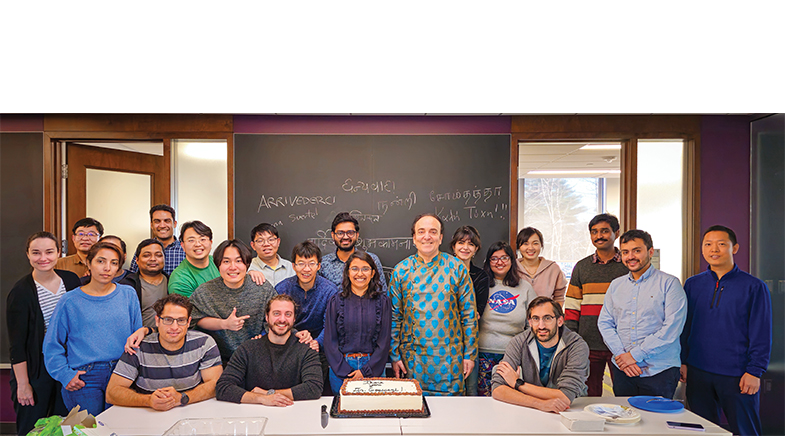Ideas that will shape our future
-
- from Shaastra :: vol 01 edition 01 :: May 2021
At Shaastra, we believe in science and technology as a force for positive change. Our stories will, therefore, focus on solutions rather than problems.
A PANDEMIC is the worst and the best of times to launch a science and technology magazine. It is the worst time because public attention is largely focussed on survival – and not on reading a freshly minted magazine. But it is also the best time because the public is interested in reading about science more than ever, and a specialised product can dive to a depth that a general interest publication cannot.
The pandemic had been in full swing for nearly a year when we started preparing seriously for our inaugural issue. Events had made the choice of our cover story automatic. But considering the long shelf-life and specialised nature of our magazine, we chose a topic not yet covered in the media. What are scientists doing in their labs that will result in improved vaccines capable of eliminating the pandemic? The answer to this question was not easy to find in India, but after searching hard, we discovered some work that looks promising. It is our first cover story.
As a magazine, we will always be looking for ideas that will create our future. At the moment, a good COVID vaccine is as important as any idea. To the cover package, we also added stories about two Indian companies about which we will hear a lot soon: Gennova and Mynvax. Gennova is 15 years old and had functioned as a publicity- shy biotech company, but the pandemic pushed it right to the forefront of our battles. It is developing India’s first messenger- RNA vaccine; our story is about its history and the events that drove its evolution as a vaccine company. The third part of our cover package, about the start-up Mynvax, grew out of our first story. Mynvax was founded by two seasoned professionals: an entrepreneur who has already sold a successful venture and a professor at the Indian Institute of Science. Mynvax develops a vaccine that kills two birds at one stroke: flu and COVID.
Elsewhere in the magazine, we look at stories that have long-term significance for the country. In the next few decades, like the rest of the world, India will increasingly face the impact of climate change. Cities will become even more crowded, creating enormous amounts of waste. New diseases will emerge as the earth warms up and people live in overcrowded surroundings. Amidst all this, the country has to create economic growth and provide jobs to three-fourths of its population. We will track and interpret the impact of these events on our country. But since we believe in science and technology as a force for positive change, our stories will focus on solutions rather than problems.
The story on Page 38 by Gauri Kamath is about how a good ecosystem is emerging for drug discovery start-ups, which are discovering products that large pharmaceutical companies were unable to do. On Page 46, T.V. Padma writes about technological solutions to the mounting solid waste in cities. K.C. Krishnadas reports on Page 16 about how conditions provide India’s companies one more opportunity to create a large fabless semiconductor industry. And on Page 50, Nidheesh M.K. reports on how a village in Kerala is faring on its journey to become carbon-neutral.
The columnists in the magazine have been chosen with care from some of the best minds in the country and abroad. On Page 35, Pawan Goenka, Chairman of the Board of Governors of IIT Madras and IIT Bombay, describes how India can create an innovative manufacturing ecosystem by moving away from the incrementalism of the past. Ramji Raghavan, founder of Agastya International Foundation, writes on Page 14 about how ‘creative learning’ is a necessity and not a luxury for the underprivileged. On Page 12, author and engineer Guru Madhavan writes about how attempts at efficiency can go too far and become counter-productive.
On Page 44, Infosys co-founder and philanthropist Kris Gopalakrishnan talks about funding science to create an innovative economy. It is the first of our interview- podcasts that we will host on our website.
Our books pages are not just for reviewing books, but a platform for writers to explore powerful new ideas. In this issue, we have books on how governments can accelerate economic growth through moonshot projects, and how research is revealing a new story about human origins. A third review is about the science of food and how we need to understand how we cook what we eat. Enjoy our inaugural issue.
Have a
story idea?
Tell us.
Do you have a recent research paper or an idea for a science/technology-themed article that you'd like to tell us about?
GET IN TOUCH















